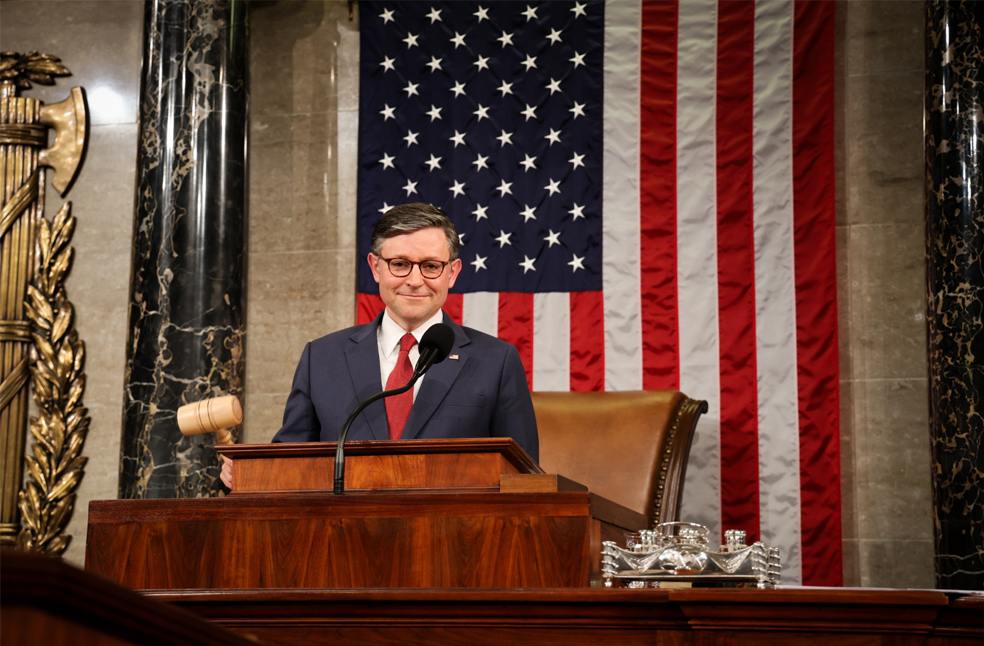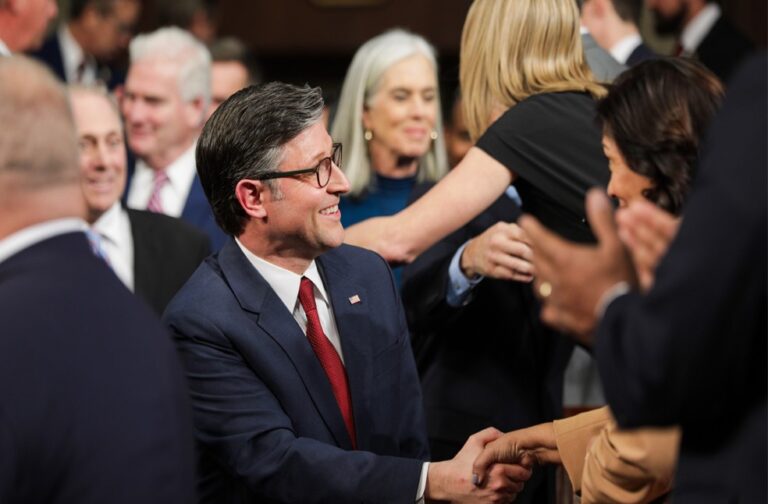Washington DC: Mike Johnson, the Louisiana Republican, narrowly survived a highly anticipated, razor-thin vote to remain as House Speaker, marking the beginning of the complete Republican control of Washington.
Johnson, who could afford to lose only two votes due to the Republican Party’s tight margin in the House, came close to losing re-election but managed to secure victory after a round of intense lobbying.
President-elect Donald Trump had endorsed Johnson for the role, calling it a “big win for the Republican Party.”
Johnson’s re-election was anything but guaranteed, as he faced significant opposition from within his own party. The Speaker vote requires a majority of 218 votes, but with such a slim Republican majority, Johnson could not afford more than two opposing Republicans.
Despite the initial setback, Johnson successfully convinced key Republicans such as Ralph Norman, Keith Self, and others to change their votes in his favor after a series of private discussions.
Norman, after speaking with Johnson, revealed that the Speaker pledged to have more conservatives at the table during negotiations and ensure that bills were properly reviewed before being voted on.

Trump also played an influential role, engaging with Norman and Self during the vote. According to Norman, Trump expressed great enthusiasm about the Republicans’ unique opportunity, highlighting the importance of having unified control of Washington.
Johnson’s re-election marked the first day of the 119th Congress, where Republicans now have unified control of both the House and Senate.
In his acceptance speech, Johnson vowed that this Congress would prioritize the “America First” agenda, a slogan championed by Trump, and reaffirmed the Republicans’ commitment to putting the nation’s interests first.
Before the vote, Johnson outlined plans to create a “working group” of independent experts, including Tesla CEO Elon Musk and Republican Vivek Ramaswamy, to collaborate with the Department of Government Efficiency (DOGE).
Johnson’s re-election underscores the high-stakes nature of House leadership votes, which have previously caused chaos, such as when former Speaker Kevin McCarthy faced 15 rounds of voting to secure the position.
With Johnson now solidifying his role as Speaker, Republicans look poised to steer the direction of Washington in the coming years.



